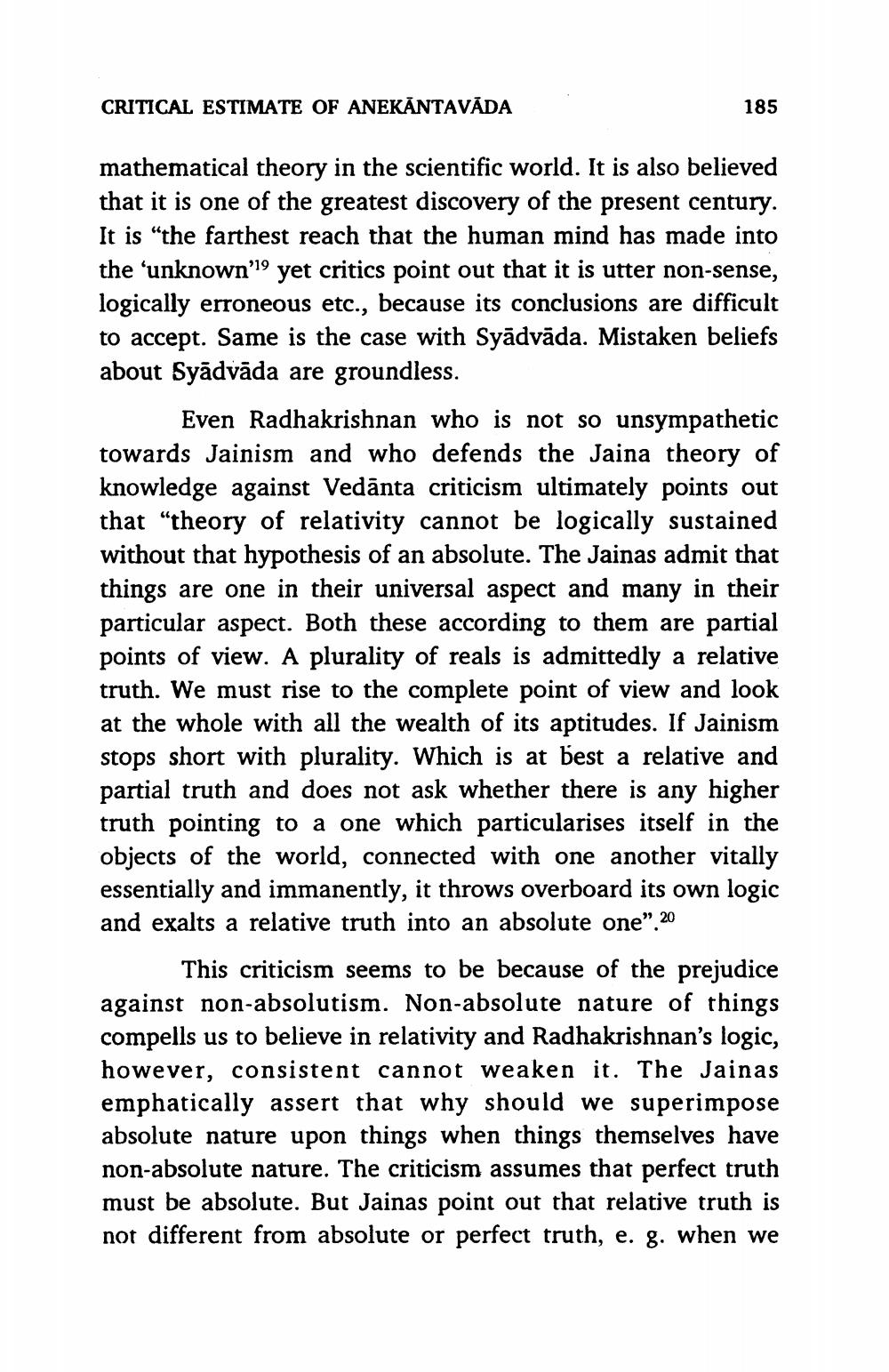________________
CRITICAL ESTIMATE OF ANEKANTAVĀDA
185
mathematical theory in the scientific world. It is also believed that it is one of the greatest discovery of the present century. It is "the farthest reach that the human mind has made into the 'unknown'19 yet critics point out that it is utter non-sense, logically erroneous etc., because its conclusions are difficult to accept. Same is the case with Syādvāda. Mistaken beliefs about Syādvāda are groundless.
Even Radhakrishnan who is not so unsympathetic towards Jainism and who defends the Jaina theory of knowledge against Vedānta criticism ultimately points out that "theory of relativity cannot be logically sustained without that hypothesis of an absolute. The Jainas admit that things are one in their universal aspect and many in their particular aspect. Both these according to them are partial points of view. A plurality of reals is admittedly a relative truth. We must rise to the complete point of view and look at the whole with all the wealth of its aptitudes. If Jainism stops short with plurality. Which is at best a relative and partial truth and does not ask whether there is any higher truth pointing to a one which particularises itself in the objects of the world, connected with one another vitally essentially and immanently, it throws overboard its own logic and exalts a relative truth into an absolute one".20
This criticism seems to be because of the prejudice against non-absolutism. Non-absolute nature of things compells us to believe in relativity and Radhakrishnan's logic, however, consistent cannot weaken it. The Jainas emphatically assert that why should we superimpose absolute nature upon things when things themselves have non-absolute nature. The criticism assumes that perfect truth must be absolute. But Jainas point out that relative truth is not different from absolute or perfect truth, e. g. when we




